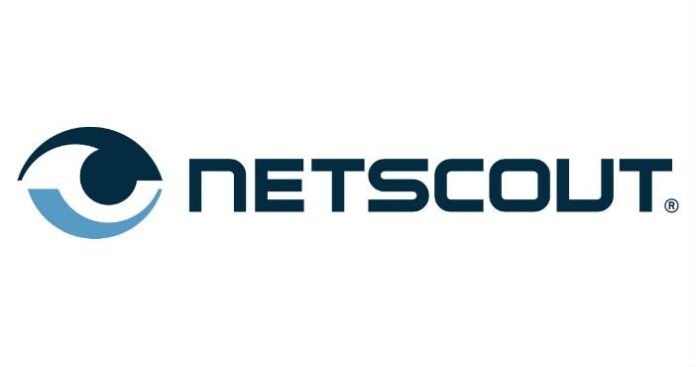The news that network performance monitoring company NetScout is buying $2.6 billion worth of network testing, monitoring and security assets from international tech and science conglomerate Danaher sets the network-monitoring ecosystem up for substantial change.
The move essentially triples NetScout’s workforce, and is being accomplished through a swap of $2.6 billion in NetScout common stock that will be extended to Danaher in order to pay for the assets of Tektronix Communications, parts of Fluke Networks, and network security company Arbor Networks, which were all operating as entities under the umbrella of Danaher’s communications business. NetScout’s most recent fiscal year revenues were $397 million, compared to the Danaher operations’ $836 million.
Although the purchase plays into current trends in network analysis and the desire for end-to-end capabilities, this is also in some ways a case of deja vu.
This isn’t NetScout’s first acquisition of a much larger entity than itself through a major stock-based purchase. Some history: In 2007, the company made a very similar transaction with Network General. The privately held company with a focus on deep-packet inspection for network analysis and data mining had about 4,000 customers, compared to about 1,000 customers for NetScout at the time.
In the case of Network General, the purchase was financed with six million shares of NetScout’s common stock, $100 million in debt securities and $50 million in cash. It expanded NetScout’s offerings for service providers – and the Danaher acquisition has similar potential.
I talked with Olga Yashkova-Shapiro, program manager for the test and measurement practice at Frost & Sullivan, about the implications of NetScout’s latest deal. She pointed out that TekComms in particular has strength in serving communication service providers, both wired and wireless, and is a leader in voice-over-LTE monitoring. Even though NetScout participates in that market, Yashkova-Shapiro said, by acquiring TekComms the company gains a market-share leader in the service provider market, as well as in wireless protocol analysis.
Yashkova-Shapiro noted that the acquisition also has potential for growing NetScout’s offerings in application network performance and network performance management, which are application performance monitoring and network performance monitoring respectively. A shift is occurring in that space as it is being recognized that neither APM nor NPM on their own are enough for overall network and service quality, leading to new offerings in the form of application-aware network performance management, or AANPM. Fluke launched an integrated AANPM solution earlier this year that is meant to bridge the gap between APM and NPM and provide monitoring and analytics across both wired and wireless networks, Yashkova-Shapiro said.
“I think that will be significant for NetScout,” she added.
In Danaher’s most recent call with investors, CEO Tom Joyce said demand for the AANPM solution TruView from Fluke was up 15% even though the company’s core revenues only had single-digit growth (read the complete transcript from Seeking Alpha here). NetScout has said it is acquiring “parts” of Fluke Networks, but has not been specific about exactly what, except that it doesn’t include Fluke’s cabling tools business or its carrier service provider tools business.
The move by NetScout echoes a couple of major trends in the overall test and monitoring market: a focus on adding value through analytics for the data being collected, as well as combining more types of testing and monitoring solutions. It sets up NetScout to be able to offer monitoring solutions across wireless and wired networks, enterprise and communication service providers while also adding an additional element of network security since Arbor Networks is part of the deal.
Also interesting is the way the transaction is being talked about by each company. NetScout is framing this as an acquisition, but Danaher seems to be talking about it in terms of “joining” its business with NetScout’s (which is how it’s phrased on TekComm’s website), or a business combination, which is how the company announced it on its own website – that it was going to “merge its communications business … with NetScout.” What is certain is that NetScout will be much more closely tied to Danaher than what would happen through a typical acquisition. Part of the deal, along with Danaher’s acquisition of stock, is that Danaher executive VP James Lico will join NetScout’s board once the transaction is complete. Lico has been the head of Danaher’s test and measurement segment since 2005.
Danaher CFO Dan Comas compared the move to the company’s joint venture on hand and power tools with Cooper Industries, which was sold two years after its inception to Bain Capital.
Asked during the quarterly call about why the transformation was done outside of Danaher rather than within the company, Comas replied that both NetScout and Fluke felt “there was a lot of increment – and this is a one plus one equals three. It’s a little bit like our tools joint venture, but we think with a greater growth profile, and we just ultimately concluded this was the best way to affect that.”
Yashkova-Shapiro said that NetScout is a market leader in the monitoring space for passive probes, and that once combined with its closest competitor, TekComms, it will have a more than 50% marketshare. She also noted that while NetScout has traditionally been a strong player in the enterprise network monitoring market, NetScout’s service provider segment has been growing rapidly in the past three years and this acquisition gives it still more fuel to grow.

